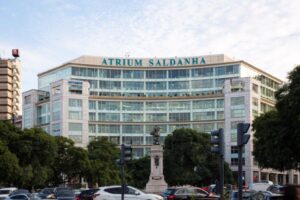When planning a move to Portugal, one of the most common dilemmas is choosing between Lisbon or Porto. These two cities offer vastly different lifestyles, and understanding the nuances of living in Lisbon Portugal versus living in Porto Portugal can help you make the right decision.
Lisbon, the capital and largest city, is a hub for international professionals, offering a fast-paced lifestyle, diverse job opportunities, and a vibrant expat community. Porto, Portugal’s second-largest city, is known for its authenticity, slower pace, and lower cost of living—ideal for those seeking a more grounded and community-oriented experience.
In this guide, we’ll explore the key differences between living in Porto vs Lisbon, covering cost of living, lifestyle, job markets, and more.
1. Cost of Living: Is Lisbon or Porto Cheaper?
1.1 Housing Costs
When it comes to living in Lisbon or Porto Portugal, housing is often the biggest expense and one of the most important factors to consider. As the capital city, Lisbon tends to have higher rental prices, especially in central neighborhoods. Recent data shows that rents in Lisbon are typically 30% to 45% more expensive than in Porto, particularly for larger apartments and prime locations.
Lisbon offers a more urban and cosmopolitan lifestyle. If you’re living in the city center, you’ll find a mix of renovated historic buildings and sleek modern apartments. These homes are well-connected to public transport and amenities, but they’re often compact and come with a premium price tag. Suburban areas around Lisbon provide more space, greenery, and family-friendly communities, though commuting times can be longer.
In contrast, living in Porto feels more grounded and local. The city center retains its traditional charm, with beautiful old buildings and a slower pace of life. Rent is noticeably more affordable, and the overall atmosphere is more relaxed. Porto’s suburban homes are spacious and ideal for families or remote workers looking for comfort and affordable options.
| Property Type | Lisbon (Center / Outskirts) | Porto (Center / Outskirts) |
| 1-Bedroom Apartment | €1,200–1,500 / €800–1,100 | €800–1,000 / €600–900 |
| 3-Bedroom Apartment | €2,600–2,650 / €1,662–1,79 | ~€1,900 / ~€1,330 |
| Studio Apartment | €800+ | — |
Property purchase prices also reflect this trend:
| Location | Price per m² |
| Lisbon | €5,565–5,615 |
| Porto | €3,741–3,837 |
Read more about buying property in Portugal
1.2 Daily Expenses
If you’re wondering whether Lisbon or Porto is cheaper for daily expenses, it clearly tips the scale in Porto’s favor. Both cities are budget-friendly by Western European standards, but Porto offers lower costs for groceries, dining, transport, and healthcare.
For example, monthly grocery bills average around €230 in Porto compared to €250 in Lisbon. Everyday items like bread, eggs, and milk are also slightly cheaper in Porto. Dining out shows a bigger gap. In Lisbon, casual meals typically cost €15–25, while mid-range restaurants charge €30–50 per person. In Porto, you’ll spend around €10–18 for casual dining and €20–35 at mid-range spots, making it a better choice for food lovers on a budget.
| Category | Lisbon | Porto |
| Monthly Groceries | ~€250 | ~€230 |
| Bread (loaf) | €1.36–1.40 | €1.32 |
| Eggs (dozen) | ~€2.75 | ~€2.60 |
| Milk (liter) | ~€0.93–1.02 | ~€0.88 |
| Casual Dining | €15–25 per meal | €10–18 per meal |
| Mid-range Dining | €15–25 per meal | €20–35 per person |
1.3 Transportation and Healthcare
Lisbon has the most comprehensive public transport system in Portugal, including metro, trams, buses, and suburban trains. Porto’s system is smaller but efficient, with metro and buses covering most areas and the city’s compact layout makes walking a viable option.
The cost of monthly passes for public transport:
- Lisbon: €40–50
- Porto: €30–40
Both cities offer high-quality public healthcare (SNS), accessible to foreigners. Basic services are often free, and emergency visits cost under €15. Private health insurance costs around €60–90/month in Lisbon and €60–85/month in Porto, with Porto being slightly more affordable overall.
Learn more about Portugal’s Healthcare System and how it works for expats
1.4 Monthly Budget Overview
Considering all expenses, Lisbon’s monthly living costs range from €1,690–2,280, while Porto’s range from €1,230–1,825. If you’re wondering if Lisbon or Porto are cheaper, the numbers show that Porto can save you 20–30% monthly, especially in housing and dining.
2. Quality of Life in Portugal: Lisbon vs Porto
2.1 Climate and Natural Environment
If sunshine is your thing, living in Lisbon Portugal might be the perfect fit. Summers here are bright and warm, with locals lounging at outdoor cafés, sipping chilled vinho verde, and sharing seafood platters. Winters are cool but mild, perfect for strolls in Alfama or attending indoor concerts. And when the weekend rolls around, beaches like Carcavelos and Costa da Caparica are just a short ride away, drawing surfers, families, and sunseekers alike.
Living in Porto, on the other hand, means embracing a more temperate and rainy climate. Winters are wetter, with locals strolling cobbled streets under umbrellas and cafés serving up steaming cups of mulled wine. But summer brings gentle warmth and golden evenings along the Douro River, where people gather to sip port wine and watch the sunset paint the city in soft hues. It’s a quieter kind of magic.
2.2 Lifestyle and Community
Lisbon’s lifestyle is energetic and fast-paced. Mornings start with packed metro rides, lunch breaks are lively in office-dense neighborhoods, and evenings often end on rooftop bars or at buzzing street parties. The city’s expat scene is thriving, with regular networking events, startup meetups, and cultural performances that make it easy to connect and collaborate.
Porto, by contrast, offers a slower, more grounded rhythm. Mornings begin with the scent of fresh bread wafting from neighborhood bakeries, and afternoons are spent jogging by the river or reading in quiet squares. Community life here is rich in tradition—think folk music, artisan markets, and local festivals that bring neighbors together. For those seeking deeper cultural immersion, Porto makes it easy to feel at home.
2.3 Culture and Entertainment
When it comes to culture, Lisbon is a vibrant mosaic. From the historic Belém Tower to cutting-edge contemporary art museums, the city is full of creative energy. LX Factory’s weekend markets and Bairro Alto’s nightlife scene offer endless opportunities to explore music, dance, and international flavors.
Porto, meanwhile, leans into its artistic soul. The city is known for its stunning architecture, intimate galleries, and deep-rooted wine culture. Whether you’re admiring azulejo-covered buildings or attending a local art show, Porto’s charm lies in its quiet sophistication and strong sense of identity.
2.4 City Size and Convenience
With over 2.8 million people in its metro area, Lisbon is Portugal’s largest city and it feels like it. The infrastructure is impressive: four metro lines, trams, buses, suburban trains, and ferries connect the city’s many districts. But its size and hilly terrain can mean longer commutes and traffic jams, especially during rush hour. Popular areas like Baixa and Alfama are often packed with tourists, adding to the hustle.
Porto, with a metro population of around 1.7 million, is more compact and easier to navigate. Most daily life revolves around the historic center and the Douro River. While its transport system is smaller, it’s efficient and affordable. Many residents walk or bike to work, contributing to the city’s laid-back vibe. In recent years, Porto has seen rapid development especially in tech, creative industries, and tourism without losing its historic charm.
2.5 Job Market, Salaries, and Remote Work Opportunities
Lisbon is the beating heart of Portugal’s economy. It’s home to multinational corporations, tech startups, financial institutions, and consulting firms. Business hubs like Parque das Nações and Amoreiras are filled with sleek office towers and ambitious professionals. If you’re aiming for international career growth, Lisbon offers a wide range of industries and advancement opportunities. Average monthly salaries range from €1,200 to €1,500, with higher earnings in tech, finance, and creative sectors.
Porto is quickly becoming a northern powerhouse for innovation and entrepreneurship. Areas like UPTEC and Matosinhos are buzzing with startups and remote workers. Coworking spaces such as Porto i/o, Synergy, and CRU cowork provide not just desks, but community and collaboration. Salaries here average €1,000 to €1,300, slightly lower than Lisbon but with lower living costs, your disposable income goes further. Many expats choose Porto for remote work, enjoying a high quality of life with less pressure.
2.6 Education and Family Life
For families, Lisbon offers a wide selection of international schools, including St. Julian’s and Carlucci American International School. These institutions provide IB, American, and British curricula, with excellent facilities and active expat communities. Annual tuition ranges from €7,000 to €20,000 depending on the school and grade level. Lisbon also boasts top universities like the University of Lisbon and NOVA University, known for excellence in engineering, science, and the arts.
Porto has fewer international schools, but CLIP (The Oporto International School) is highly respected, with stable faculty and strong academic performance. Public schools in Porto are well-supported and popular among families who want their children to integrate into local culture. The city’s family-friendly neighborhoods and slower pace make it a great choice for raising kids.
3. Lisbon vs Porto: Which City Is Better for Expats?
Choosing between Lisbon and Porto as your new home in Portugal depends largely on your lifestyle priorities. Each city has its own rhythm, charm, and set of opportunities, making them both appealing in different ways. Lisbon is vibrant and cosmopolitan. Porto, on the other hand, offers a more relaxed and affordable lifestyle.
| Profile Type | Best Fit: Lisbon | Best Fit: Porto |
| Seeking international career growth | ✔ | — |
| Budget-conscious, cost-sensitive | — | ✔ |
| Enjoys urban pace and diversity | ✔ | — |
| Prefers slow living and friendly community | — | ✔ |
| Has school-age children, needs international schools | ✔ | — |
| Remote workers, freelancers, entrepreneurs | ✔ | ✔ |
| Retirees or long-term residents | — | ✔ |
Planning to Move to Portugal?
Whether you’re drawn to the energy of living in Lisbon Portugal or the charm of living in Porto Portugal, choosing the right visa is essential. Consider:
- D7 Visa for retirees: Learn more
- D8 Visa for digital nomads and entrepreneurs: Learn more
Need help deciding between Lisbon vs Porto or navigating the visa process? Our expert team can guide you from start to finish.
Contact us today to start your journey to Portugal!






















